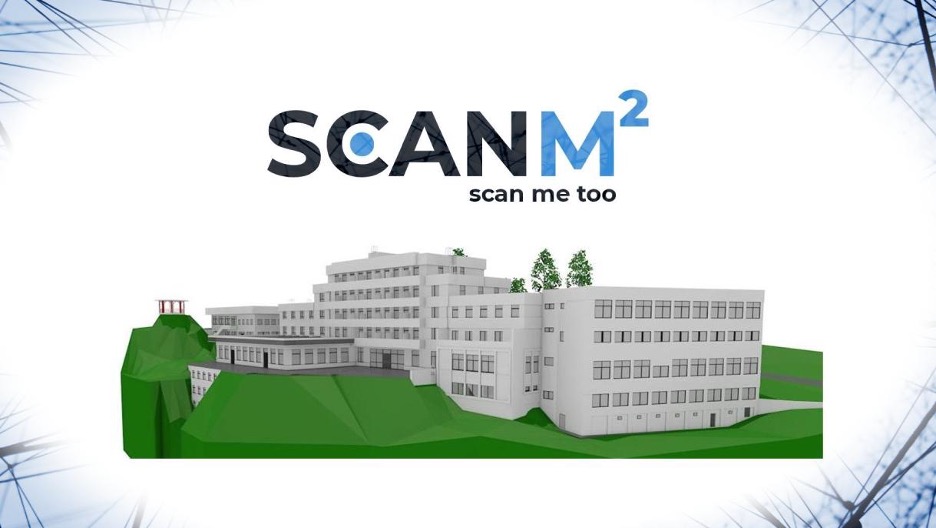For too long, major architectural visions have been tethered to the often-slow and restrictive currents of traditional real estate finance. Lengthy loan approvals, daunting capital demands, and reliance on conventional institutions have inadvertently stifled innovation. But a powerful tide is turning.
Fintech, the disruptive force reshaping industries globally, is now charting novel and efficient pathways for funding architectural development. Imagine a landscape where visionary designs aren't just dreamt but are swiftly financed and realized through agile, tech-driven solutions.
This is the promise of fintech, a synergy of finance and form poised to redefine how we build our future. Let's explore!
The Rise of Crowdfunding in Architectural Ventures
At its core, real estate crowdfunding democratizes investment opportunities. Online platforms act as marketplaces, showcasing architectural projects seeking funding to a broad audience. Equity-based models allow investors to become part-owners, sharing in potential profits.
Debt-based models function like peer-to-peer lending, with investors providing capital in exchange for interest payments. Hybrid models offer a combination, potentially providing both equity and debt-like returns.
Expanded Access to Capital
Real estate crowdfunding has emerged as a significant alternative funding source, democratizing investment in architectural development. The global real estate crowdfunding market was valued at over USD 16 billion in 2024 and is projected to exceed USD 2 trillion by 2037, demonstrating a staggering compound annual growth rate (CAGR) of over 45%.
This surge highlights the increasing willingness of both individual and institutional investors to participate in real estate ventures through online platforms, providing architects and developers with access to capital that traditional lenders might have deemed too risky or overlooked due to conventional assessment criteria.
Community Engagement and Validation
Beyond just financial backing, crowdfunding offers a unique opportunity for community engagement and project validation. By presenting their designs and development plans on crowdfunding platforms, architects can gauge public interest and garner support even before breaking ground.
Successful campaigns secure funding and cultivate a sense of ownership and anticipation within the community. For instance, the "Luchtsingel" pedestrian bridge in Rotterdam successfully raised over €100,000 by offering donors the chance to inscribe their names on the bridge's planks.
Marketing and Awareness
Crowdfunding campaigns are powerful early marketing tools for architectural designs and developments. The visual nature of architectural projects lends itself well to online platforms, allowing architects to showcase renderings, videos, and detailed plans to a broad audience of potential investors and future occupants.
The narrative crafted around the project on these platforms can generate significant buzz and media attention, creating brand awareness and attracting potential buyers or tenants long before completion. The very act of individuals investing in a project fosters a sense of connection and advocacy, turning investors into early adopters and vocal supporters.
Smart Contracts and Tokenization in Real Estate Architecture
Blockchain, a distributed ledger technology, records transactions across numerous computers, ensuring immutability and transparency. Once a transaction is added, it cannot be altered, creating a secure and auditable record.
Smart contracts can streamline transactions by automating payments to architects, contractors, and suppliers upon the completion of pre-defined milestones, ensuring transparent financial flows and reducing delays.
Tokenization allows for the fractional ownership of real estate assets, dividing large properties into smaller, tradable digital tokens. Platforms like RealT and Harbor facilitate this, lowering investment barriers and providing developers with greater liquidity.
Smart contracts ensure faster and more reliable payments for architectural services upon the fulfillment of contractual obligations, minimizing payment disputes and improving cash flow.
Tokenization of architectural designs or shares in development projects can open up new investment avenues for architects, allowing them to attract a broader investor base and potentially participate in the financial success of their creations beyond traditional fee structures.
Proptech Lending Platforms For Tailored Financial Solutions
Online lending platforms specializing in real estate, known as proptech lending platforms, are revolutionizing traditional financing processes. Using technology, these platforms offer streamlined application processes, faster approval times, and potentially more flexible loan terms compared to conventional banks.
Proptech lending platforms offer significant advantages tailored to the unique needs of architectural development. Their speed and efficiency in loan processing can be substantially faster than traditional banks, with some platforms boasting approval times measured in days rather than weeks or months.
This agility is crucial in the fast-paced world of real estate development. Furthermore, their data-driven risk assessment models utilize a wider range of data points beyond traditional credit scores, potentially opening doors for innovative or unconventional projects that might not meet the strict criteria of conventional lenders.
Finally, many proptech platforms offer specialized loan products designed for the specific stages of architectural development, including land acquisition loans, pre-construction financing for design and planning phases, and construction loans with flexible draw schedules aligned with project milestones
Informing Financial Decisions in Architectural Development
Understanding these patterns allows for more accurate forecasting of demand, identification of lucrative locations, and optimized project design to meet market needs, ultimately mitigating financial risks and maximizing returns.
A growing array of fintech tools empowers architects and developers with data-driven insights. Software platforms offer comprehensive real estate market analysis, generating detailed feasibility studies and sophisticated risk assessments.
Artificial intelligence is increasingly being applied within real estate finance, enhancing financial modeling, refining risk assessment processes, and improving the accuracy of property valuations.
However, it's crucial to distinguish these applications from tools like Quantum AI, a crypto trading bot operating within the distinct and highly volatile cryptocurrency market. The sophisticated AI algorithms used in real estate finance focus on analyzing tangible asset data and market fundamentals, a different domain from the speculative nature of crypto trading.
The Convergence Of Fintech Solutions
The future of architectural development finance points towards an increasing convergence of various fintech solutions, creating comprehensive and integrated platforms. A workflow where crowdfunding platforms connect directly with proptech lending for subsequent construction financing, all while leveraging blockchain for secure contract management and data analytics for informed decision-making throughout the project lifecycle.
Beyond the established fintech avenues, emerging trends like embedded finance – the integration of financial services directly into non-financial platforms – could further simplify funding access for architectural projects.
For instance, design software could offer integrated financing options based on project specifications and projected costs. Furthermore, the potential impact of decentralized autonomous organizations (DAOs) in real estate, while still nascent, could introduce novel forms of collective investment and governance in architectural developments.
It's important to note, however, that while advancements like Quantum AI are generating interest within the cryptocurrency space, their direct applicability within the traditional financial frameworks governing architectural development remains in its early stages and warrants careful evaluation due to the inherent volatility and regulatory complexities of crypto markets.
The core financial infrastructure for architectural projects will likely continue to rely on more established and regulated fintech solutions.
Final Thoughts
Fintech is undeniably reshaping the financial landscape of architectural development, democratizing access to crucial capital, streamlining traditionally complex processes, and ultimately fostering a new era of innovation in the built environment.
By embracing these novel financial pathways – from crowdfunding's community-driven investment to blockchain's transparent contracts and AI-powered analytics – architects, developers, and investors stand to unlock unprecedented opportunities.
The future of our cities and structures hinges on our willingness to explore and integrate these technological advancements, paving the way for more visionary and efficiently realized architectural endeavors.





